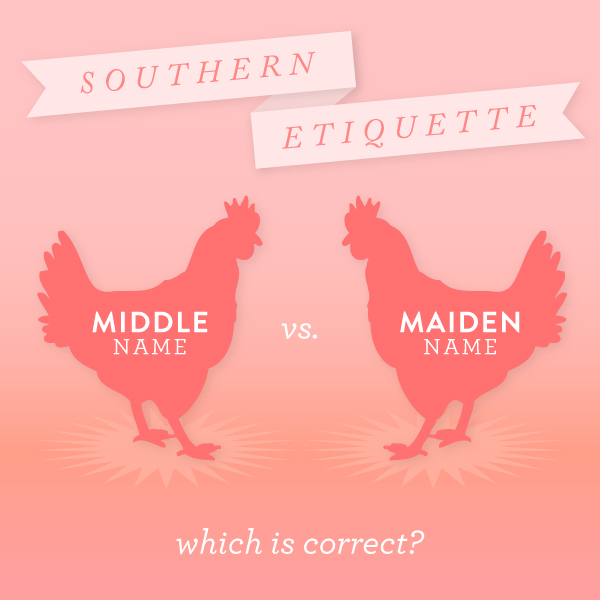Your mother’s maiden name refers to her last name before she got married.
Meaning Of Mother’s Maiden Name
The mother’s maiden name refers to the surname or last name that a woman had before she got married. It is commonly used for security purposes, especially as a security question in various online platforms. The cultural significance of the mother’s maiden name can be traced back to historical importance. In ancient times, a woman’s maiden name held great importance as it symbolized her family lineage and ancestry. It served as an identifier of her social standing and heritage. Additionally, a woman’s maiden name was used to maintain family connections and trace genealogy. In modern times, the use of a mother’s maiden name as a security question helps protect sensitive information and prevent identity theft. It acts as an additional layer of verification, ensuring that only the authorized person can access private accounts or personal information. The concept of a mother’s maiden name continues to hold importance and serves as a unique identifier of a person’s heritage and identity.
Origins Of Maiden Names
In the realm of naming conventions, the origin of maiden names can reveal intriguing insights into cultural practices. In patrilineal societies, where descent and inheritance are traced through the male line, maiden names often carry less significance. These societies primarily focus on the patriarchal lineage and trace family history through the father’s side. Contrastingly, matrilineal societies place more importance on the mother’s side, resulting in the persistence and preservation of maiden names. Within different cultures, maiden names can reflect diverse customs and traditions. For instance, in some cultures, women may adopt their husband’s surname upon marriage, while others retain their maiden names. In certain societies, women may even combine their maiden name with their spouse’s last name or choose to use both surnames interchangeably. These multifaceted practices surrounding maiden names highlight the rich tapestry of cultural diversity present in naming conventions.
Significance Of Mother’s Maiden Name
Understanding the importance of one’s mother’s maiden name goes beyond a mere personal detail. It holds a profound place in various aspects of life:
Psychological and Emotional Connections: The mother’s maiden name carries emotional significance, representing a connection to one’s mother and maternal family. It holds sentimental value, forming links to cherished memories and familial bonds.
Legal Implications: The mother’s maiden name can have legal implications, particularly in matters of inheritance, genealogical research, and identifying biological lineage.
Understanding the meaning of your mother’s maiden name goes beyond a mere detail; it carries immense significance in personal identity, preserving family history, emotional connections, and legal matters.

Credit: southernweddings.com
Historical Relevance
Mother’s maiden name holds significant historical relevance, primarily documented for genealogical purposes. It serves as an essential piece of information in tracing ancestry and understanding family lineage. This historical documentation plays a pivotal role in discovering one’s roots and heritage.
The mother’s maiden name also has practical implications in terms of property rights and inheritance. It helps in determining rightful heirs and ensuring the transfer of assets according to legal regulations. Additionally, it aids in resolving legal disputes and safeguarding the interests of individuals with regard to their family’s property.
In summary, the historical significance of a mother’s maiden name is twofold. It provides crucial insights into one’s family history and genealogy while also playing a crucial role in matters of property rights and inheritance.
Cultural Traditions And Customs
Maiden names hold significant cultural value in different societies around the world. These names serve as a symbol of identity and heritage, reflecting cultural traditions and customs. In many cultures, including Western societies, it is common for women to adopt their husband’s surname upon marriage, thereby replacing their maiden name. However, in some cultures, such as Hispanic and Asian cultures, women often retain their maiden name even after marriage.
Naming conventions vary widely across different cultures. For instance, in some cultures, individuals have a single name, while in others, they may have a given name and a family name. In some cases, individuals may also have a middle name. These cultural naming practices can influence the decision of whether or not to pass down the mother’s maiden name through generations.
In some cultures, the maiden name can play a crucial role in marriage customs. For example, in certain communities, the bride’s maiden name may be incorporated into the groom’s family name as a symbol of unity and integration of families. This practice not only emphasizes the importance of the maiden name but also signifies the merging of two families.
Furthermore, the influence of maiden names can extend to family naming traditions. In cultures where the mother’s maiden name holds significance, it may become a middle name for her children, ensuring the preservation of her family lineage. This practice helps maintain ties to ancestries and honor maternal family connections.
Feminism And Mother’s Maiden Name
Symbol of women’s independence and empowerment: Your mother’s maiden name is not just a random piece of information, it holds significant meaning in the fight for women’s rights. It serves as a symbol of women’s independence and empowerment in a society that has long been dominated by patriarchal norms.
Role in challenging patriarchal norms: The use of a mother’s maiden name challenges the traditional practice of taking on the father’s surname. By retaining her maiden name, a woman asserts her individual identity and rejects the notion that she is her father’s property to be given away in marriage.
Impact on gender equality: Embracing the mother’s maiden name contributes to advancing gender equality. It challenges the assumption that a woman’s identity is solely derived from her relationship to a man. This small act can have far-reaching implications in dismantling societal norms that reinforce gender inequality.
Privacy And Security Concerns
Significance in online security and identity theft prevention:
|
Modern Practices And Changes
In today’s society, there has been a noticeable shift in the use of maiden names. One notable trend is the rise of hyphenated and combined surnames. Many individuals, both men and women, are opting to combine their last names or hyphenate them to create a unique and egalitarian identity. This practice challenges traditional naming conventions and allows couples to express their commitment to equality and individuality.
Another significant change is the increased acceptance of using maiden names in professional settings. In the past, women often adopted their husband’s surname, which sometimes caused confusion when navigating the workplace. However, with the growing recognition of women’s autonomy and the importance of maintaining personal identities, it has become more common for women to use their maiden names professionally. This enables them to establish their professional reputation and maintain continuity in their careers.
Impact of changing social norms on the use of maiden names
The changing social norms surrounding the use of maiden names reflect a broader societal shift towards valuing individuality and independence. As gender roles evolve and cultural expectations change, more people are embracing the idea that a person’s name should not define their identity or relationship status. The use of maiden names can serve as a form of self-expression and a symbol of personal agency. With the increasing recognition of diverse naming practices, individuals are empowered to choose the name that most accurately reflects their identity and values.
Implications For Future Generations
The mother’s maiden name plays a significant role in preserving family history and traditions. It serves as a link to the past, revealing valuable insights into one’s ancestry. By discovering and documenting the maiden names of female ancestors, individuals can uncover their maternal lineage and gain a deeper understanding of their heritage.
Changing attitudes towards maiden names have led to a shift in naming customs. With more women choosing to keep their maiden names after marriage or hyphenating them with their spouse’s surname, future generations may encounter a more diverse range of family name combinations. This shift reflects societal progress towards gender equality and individual identity.
These changing attitudes can have potential impact on future naming customs. Children may be given hyphenated last names to incorporate both maternal and paternal surnames, or they may choose to adopt their mother’s maiden name as a middle name. This trend helps create a sense of shared heritage and honors the contributions of both maternal and paternal ancestors.
Frequently Asked Questions On What Does Your Mother’s Maiden Name Mean
What Is The Significance Of Your Mother’s Maiden Name?
Your mother’s maiden name is her surname before she got married. It is a useful piece of personal information used for security and verification purposes, particularly in financial and legal transactions. Protecting this information is essential to prevent identity theft and unauthorized access to personal accounts.
Can Your Mother’s Maiden Name Be Changed?
No, your mother’s maiden name cannot be changed as it is a reflection of her family lineage and history. However, she can change her last name through marriage or by going through the legal process of changing her name, but her maiden name will always remain the same.
Are Mothers The Only Ones With Maiden Names?
No, both men and women have maiden names. It refers to the last name they were given at birth before they got married and changed their surname. In traditional family structures, the exchange of last names typically occurs when a woman gets married, but it is not exclusive to mothers.
Conclusion
Understanding the meaning behind your mother’s maiden name can provide you with valuable insight into your family history. Whether it signifies ancestral heritage or was chosen for personal reasons, this name holds significance. Unveiling the stories and origins attached to this name allows you to connect with your roots and appreciate the layers of your identity.
Embrace the opportunity to delve into your family’s past and uncover the rich tapestry that shapes your present.




